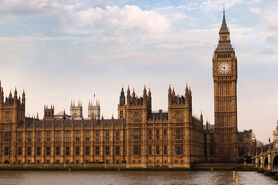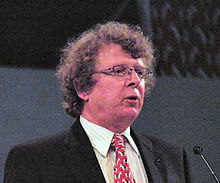
The House Of Commons is the lower house of the Parliament of the United Kingdom of Great Britain and Northern Ireland which, like the House of Lords (the upper house), meets in the Palace of Westminster. The House is an elected body consisting of 650 members known as Members of Parliament (MPs). Members are elected to represent constituencies by first-past-the-post and hold their seats until Parliament is dissolved.
A House of Commons of England evolved at some point in England during the 14th century, becoming the House of Commons of Great Britain after the political union with Scotland in 1707 and then assuming its current title after the political union with Ireland in the nineteenth century. The "United Kingdom" referred to was the United Kingdom of Great Britain and Ireland from 1800, and became the United Kingdom of Great Britain and Northern Ireland after independence was given to the Irish Free State in 1922.
Under the Parliament Act 1911, the Lords' power to reject legislation was reduced to a delaying power. The Government is primarily responsible to the House of Commons and the prime minister stays in office only as long as he or she retains the support of a majority of its members.
Early Day Motions[]
Early Day Motions (EDMs) are formal motions submitted for debate in the House of Commons. However, very few are actually debated. EDMs allow MPs to draw attention to an event or cause. MPs register their support by signing individual motions.
Links To Peel[]
It was the House of Commons which passed the Marine &c. Broadcasting (Offences) Act 1967[1], which put an end to the first phase of Peel's British career, as a DJ on Radio London, which like other offshore pirate radio stations, was forced to close down by the new legislation. Yet ironically this closedown was delayed, after an amendment to the bill was forced through in April by Conservative peers in the House of Lords, allowing the pirates to continue broadcasting until August[2]. The delay proved to be of advantage to Peel, as In the months before the law came into force, he was able make his name and gain popularity through his Perfumed Garden show.
On his 23 November 1982 show, Peel mentioned visiting the House Of Parliament to see the film The Atomic Cafe, a documentary about nuclear warfare that he recommended to his listeners.

Labour MP, Jane Griffiths for Reading East
After Peel's death, an Early Day Motion #1822 was sponsored by Labour MP Jane Griffiths for Reading East, on 26th October 2004, which stated:
"That this House is saddened by the tragic and untimely death of legendary DJ, broadcaster and baby-boomers hero John Peel; believes that radio will never be the same again; and calls on the BBC and the Government to commemorate his life and work in a manner which befits his tremendous contribution to music and to broadcasting."
The motion was signed and supported by 63 MPs. [3]

Liberal Democrats MP, Richard Younger-Ross for Teignbridge
An Early Day Motion numbered #1828 was sponsored by Liberal Democrats MP Richard Younger-Ross for Teignbridge, on 27th October 2004 which stated:
"That this House is saddened by the sudden death of John Peel and recognises his enormous contribution to British music and culture across many decades; and celebrates the life of this extraordinary man."
That motion was signed and supported by 60 MPs. [4]
The Early Day Motion #1828 was later amended to include the following:
"That this House is saddened by the sudden death of John Peel and recognises his enormous contribution to British music and culture across many decades especially salutes his role in the pioneering BBC Radio 4 programme 'Home Truths; and celebrates the life of this extraordinary man."
That amended motion was signed and supported by 6 MP's. [5]